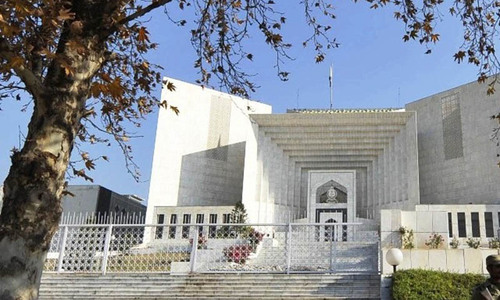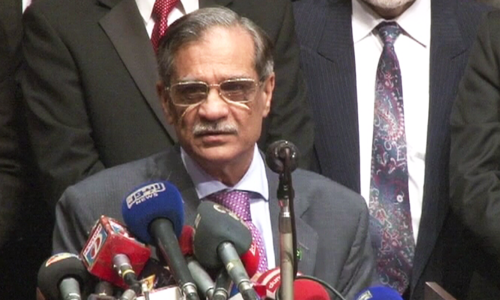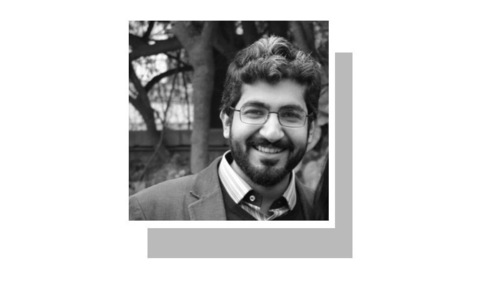ISLAMABAD: Chief Justice of Pakistan Asif Saeed Khosa on Monday observed that the aim of the Supreme Court’s decision to not allow increase in school fees more than five per cent per annum was to check corruption.
Read: SC orders 20pc reduction in private school fees over Rs5,000
He was heading a three-judge Supreme Court bench which heard a set of cases relating to education institutions and increase in school fees.
The CJP said the apex court capped the increase in school fees at 5pc because it knew that the relevant government departments could grant permission to private educational institutions to increase their fees even by 75pc.
Counsel Makhdoom Ali Khan, who represented a number of private educational institutions in the cases challenging the Rule 7(3) of the Sindh Private Educational Institutions (Regulation and Control) Rules 2005, argued that private schools were not asking the court to allow increase in school fees by 10, 15 or 25 per cent per annum. But, he added, they wanted to question the restriction the Sindh government had imposed upon itself from looking into the application of these schools to allow increase in fees more than five per cent per annum.
Justice Ahsan says absence of fees regulation will encourage private schools to operate a cartel
According to the counsel, this will be the end of the road for private schools if everything has to be determined by the Sindh government in the name of regulation. He contended that these restrictions by the Sindh government were contrary to the statute as well as to the Constitution.
By introducing this limit, the Sindh government had virtually put fetters on its own discretion to allow increase more than 5pc in view of the ground reality, the counsel said. Therefore, the decision has to meet the test of the constitutionality, the counsel argued. Regulations must be introduced in the interest of free competition, he added.
Though increase in school fees had been capped at 5pc per annum, the CJP said, there was no report that any of private schools had gone out of business. In fact, he added, some private schools were expanding their businesses by opening new branches.
He referred to a report furnished by the auditor general on the directives of the apex court and said it was an eye-opener.
The auditor general’s report has highlighted how directors of some schools are getting millions in salary and how billions of rupees are earned by these private schools.
The CJP wondered despite earning huge profits these schools termed restriction on more than 5pc increase in fees a harsh rule.
Justice Ijazul Ahsan, a member of the bench, observed that profits of many private schools had increased manifold, adding that they took money from parents for security deposits and admission fees and earned profits on that money.
Justice Ahsan feared that the absence of a regulation on fees would encourage these schools to operate a cartel.
The counsel, however, explained that no material or evidence was ever presented by the Sindh government before the Sindh High Court or the Supreme Court to justify that private schools were flushed with windfall security deposits and admission fees.
The provincial government had devised a one-size-fits-all formula for all 17,000 private schools in Sindh, the counsel contended, adding these schools would not get automatic permission to enhance fee by 5pc, rather they had to apply to the Sindh government even to increase the fee by 0.5 per cent, especially when the provincial government did not have the capacity to deal with the applications of 17,000 schools.
The CJP observed that an administrative decision could be called unreasonable, but not a piece of legislation. Private schools were asking for reasonable latitude by stating that laws were unreasonable since private schools wanted the upper limit in the increase of fees be taken off, the CJP said.
Justice Faisal Arab regretted that in many public schools some teachers were getting handsome salaries, but they were not doing justice to what they get. Teachers in private schools earned far less amount but they perform better.
The Supreme Court postponed further proceedings for Tuesday hinting that it might conclude the matter.
Published in Dawn, May 7th, 2019















































